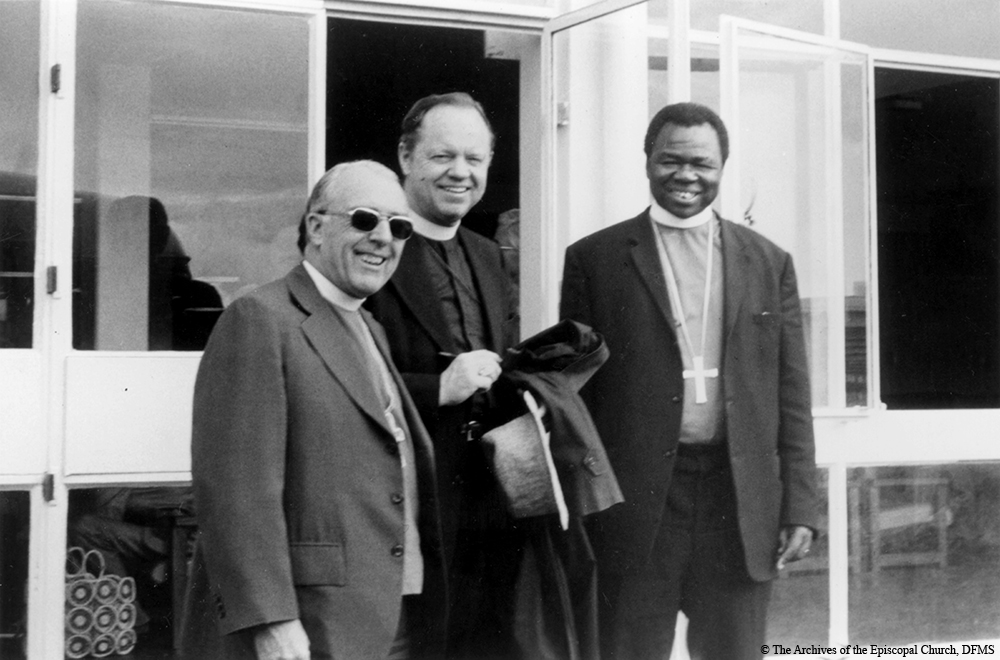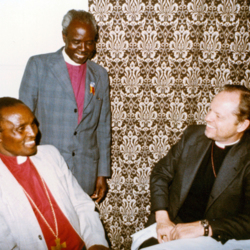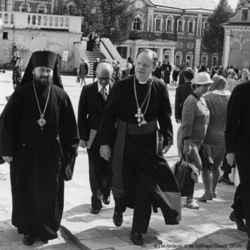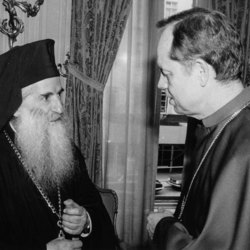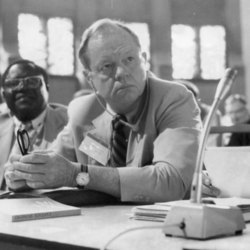Ecumenism
A Polite Representative
As Bishop of Mississippi, Allin already had served a number of years on the Executive Council’s Joint Commission on Ecumenical Relations, participating as a member of the Anglican-Roman Catholic Consultation. As Presiding Bishop, Allin inherited the prescribed role of representative to ecumenical bodies such as the National Council of Churches, World Council of Churches and the Consultation on Church Union. He also held the responsibility of visiting the Ecumenical Patriarch of Constantinople.
Allin confessed to having initially held a naive view of the direction of the ecumenical movement. He admitted to his limited knowledge and assumed a humble role: “I was a polite representative of the Episcopal Church in the ecumenical movement.”30 Allin found meaning in the personal interactions that accompanied his ecumenical duties, even those that were marked more by formalities than accomplishments. He believed that “The relationships that come from those discussions will be the adhesiveness that gradually brings us together.”31 Whether or not he felt himself an ecumenist, the 1985 General Convention adopted a resolution recognizing Allin’s leadership in this ministry throughout his time as Presiding Bishop. His private ideal was to have all Christians together under one roof, worshiping from a standard prayer book, but ultimately Allin realized that the ecumenical church was much wider and more profound in its reach – a necessity that needed to be allowed to emerge.


